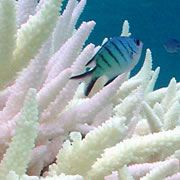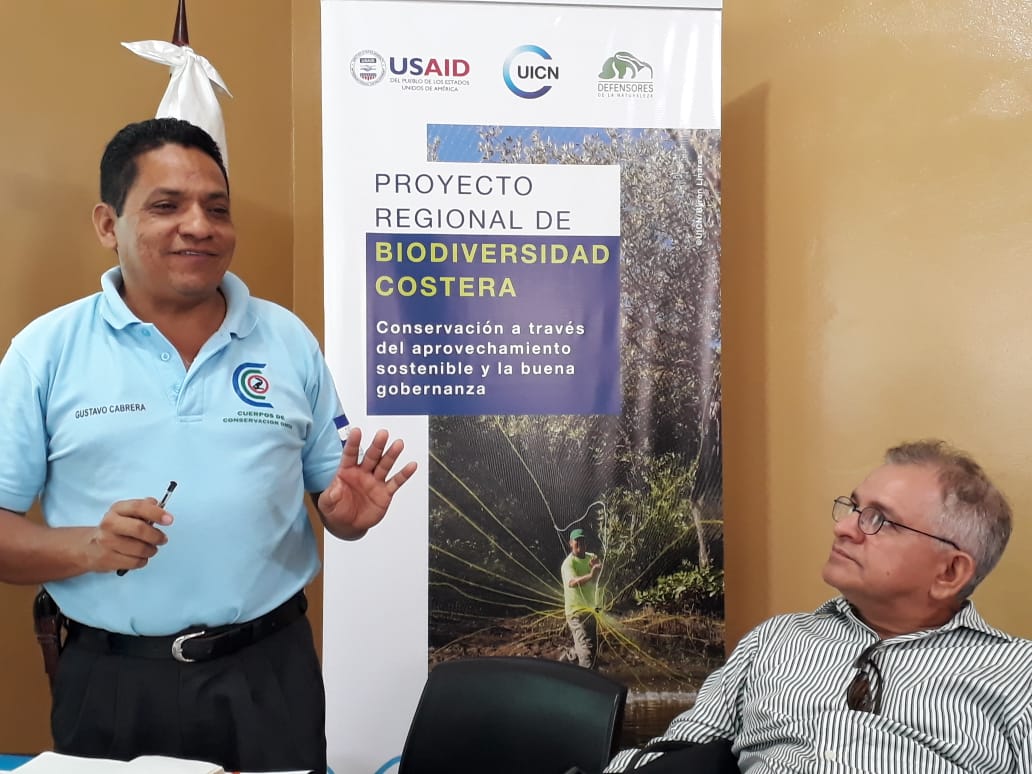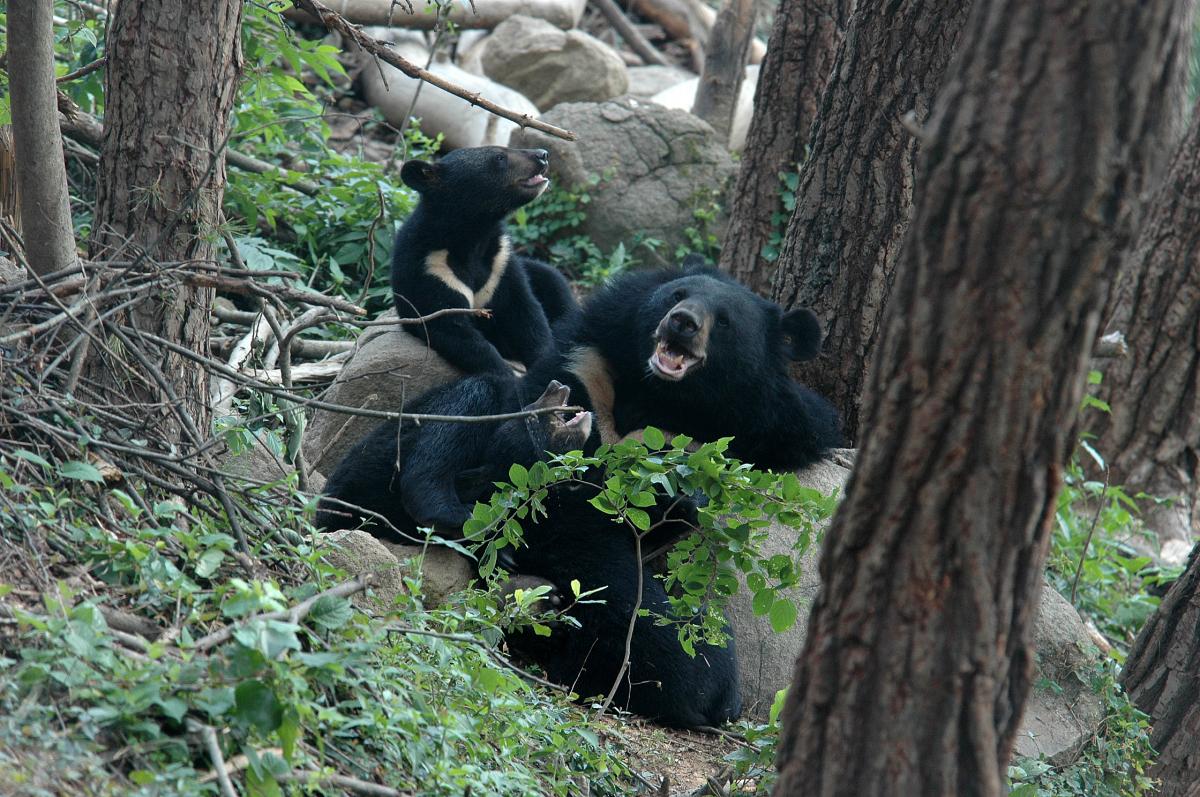Protecting oceans and coasts will help millions of people survive climate change
IUCN Marine Protected Area Summit in Washington, DC opens today with call for better protection of our seas to counter climate change and other threats to the marine environment

Photo: Paul Marshall
Climate change will hit the poorest of the poor hardest, with many millions of coastal and island populations especially affected by flooding, coastal erosion and shrinking fish stocks, reported the Intergovernmental Panel on Climate Change last Friday.
Today, the IUCN Marine Protected Area Summit opens in Washington, DC with a clear message for governments and the marine conservation community on how to help coastal communities and the marine environment survive climate change: by increasing the protection of our oceans and coasts.
The Summit, organized by IUCN’s World Commission on Protected Areas, brings together the world’s leading marine experts from 10-12 April.
“Better protecting our oceans is essential for tackling climate change. Our oceans play a fundamental role in shaping and regulating our climate, and yet today, only 1% of our oceans are protected,” said Dan Laffoley, Marine Vice Chair of IUCN’s World Commission on Protected Areas. “Marine protected areas are vital in promoting the recovery of our oceans and in supporting the survival of millions of people living by the sea over the coming century,” Laffoley added.
”Governments and the conservation community need to step up marine protection if we are to support the global effort to tackle climate change,” said Julia Marton-Lefèvre, Director General of the World Conservation Union (IUCN).
“As Friday’s UN Climate Change Report stated, a sea temperature rise of 1-3 °C will be enough for a major decline in coral reefs, unless corals adapt to warmer waters. This acclimatisation will only be possible if they are protected from other stresses such as pollution or overfishing,” Marton-Lefèvre added.
Intact coral reefs and mangroves act as natural barriers against storms and floods, and healthy marine ecosystems world-wide will be more resilient to climate change impacts. These impacts include coral bleaching and mortality, displacement of key species and overall decline in ecosystem quality.
20% of coral reefs have already been wrecked and a further 50% are facing immediate or long term danger of collapse. Coral reefs provide livelihoods to 100 million people and provide the basis for industries such as tourism and fishing, worth an annual net benefit of US$ 30 billion.
The situation is so serious that the UN Security Council will meet on 17 April to debate the global security issues that climate change now presents.
The Maldives – an island paradise threatened by climate change
The Maldives have already increased protection of their natural environment: with 80% of its islands lying no more than 1m above sea level, they could become uninhabitable within 100 years, forcing 360,000 citizens to evacuate. To protect its people, the government has been encouraging forestation to prevent beach erosion, and protecting coral reefs, which act as natural barriers against tidal surges.
The IUCN Marine Protected Area Summit will agree measures on how marine reserves can counter climate change and other threats to the marine environment. Questions include how these protected areas can support fisheries; protect vulnerable, scarce and rare species and habitats; how to connect them to ensure species migration; and how to tackle the specific health implications of climate change.
The Summit will also launch a new tool for dramatically increasing our day-to-day understanding of how well our seas are protected. Called the “Wet List”, this annual report will help everyone understand the progress being made in marine conservation, and help the global community rise to the challenges of the coming decades. This will be a new global undertaking drawing on the expertise of the IUCN World Commission on Protected Areas, the world’s largest network of protected area experts, together with the combined commitment of global marine conservation partner organisations.
On the closing day, the Summit will launch a “Global Marine Protected Area Challenge”, identifying priorities for action for the marine community and governments around the world.
The Summit: The IUCN Marine Protected Area Summit, organized by the World Conservation Union (IUCN) and its World Commission on Protected Areas (WCPA)
Date: 10-12 April 2007
Venue: National Geographic Society, Washington D.C., USA
For more information contact or to set up interviews please contact:
Carolin Wahnbaeck, IUCN Media Relations Officer, Tel. +41 22 999 1027,
Mobile: +41 76 53 707 54, Fax +41 22 999 0020, carolin.wahnbaeck@iucn.org
Photos are available from: carolin.wahnbaeck@iucn.org
The World Conservation Union (IUCN)
The World Conservation Union is the world’s largest conservation network. The Union brings together 83 States, 110 government agencies, more than 800 non-governmental organizations (NGOs), and some 10,000 scientists and experts from 181 countries in a unique worldwide partnership. The Union’s mission is to influence, encourage and assist societies throughout the world to conserve the integrity and diversity of nature and to ensure that any use of natural resources is equitable and ecologically sustainable. The World Conservation Union is a multicultural, multilingual organisation with 1000 staff located in 62 countries. Its headquarters are in Gland, Switzerland. www.iucn.org
The World Commission on Protected Areas (WCPA) (web)
The World Commission on Protected Areas (WCPA) is the world’s leading network of protected area managers and specialists, with over 1,300 members in 140 countries. WCPA is one of the six voluntary Commissions of the World Conservation Union (IUCN) and is administered by the Protected Areas Programme at the Union’s headquarters in Gland, Switzerland. WCPA’s mission is to promote the establishment and effective management of a worldwide representative network of terrestrial and marine protected areas, as an integral contribution to the IUCN mission.



